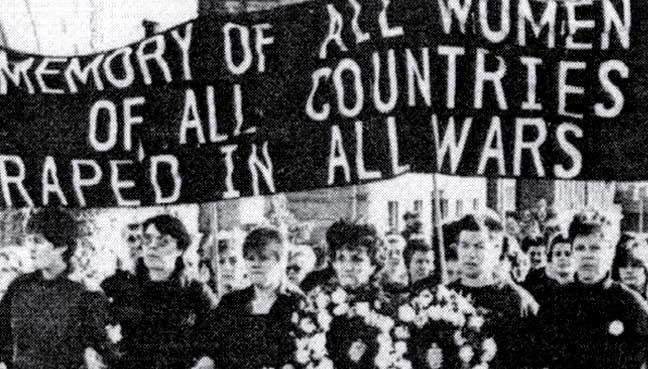
Congo's Jean-Pierre Bemba became the highest-ranking politician to be convicted by the international war crimes court on Monday, when it judged him responsible for a 2002-2003 campaign of rape and murder in Central African Republic.
It is the International Criminal Court's first case to focus primarily on crimes of sexual violence committed in war, as well as the first in which the court has found a high official directly responsible for the crimes of his subordinates.
Rape can be a weapon of choice for armed groups, and it has the power to destroy entire communities – as well as individual victims' lives – and instill fear across regions.
There has been a growing international focus on sexual violence in conflict and what can be done to end this crime, but how much do we actually know about it?
Here are four myths around the issue:
1. Rape is used as a weapon of war in all conflicts.
Sexual violence is not the weapon of choice for many armed groups and only occurs in some conflicts.
The widespread use of rape by armed groups and the brutal forms it can take has been evident in Syria, Iraq, Rwanda, Bosnia and eastern Congo.
However, many conflicts involve very low levels or no sexual violence, according to a study by researchers from Harvard and the Peace Research Institute Oslo.
2. Only women are victims of sexual violence in war.
Men are victims too. It is an invisible side of war because men are usually even more reluctant to say what has happened to them than women, and surveys rarely broach the issue.
3. Only men carry out sexual violence.
There has been even less research on this than on male victims of rape, but there have been reports of female soldiers or rebels inflicting sexual violence on both men and women, and it may be more common than previously thought.
In a survey carried out in 2010 in eastern Congo, 41 percent of female victims of sexual violence, and 10 percent of male victims, said they had been attacked by women.
4. In a war, armed men are the main perpetrators of rape.
Not necessarily. A public gang rape by armed men is more likely to hit the headlines than a woman raped by her husband in her own home.
Many studies of wartime sexual violence also focus on rape carried out by armed groups.
However, some surveys carried out in Colombia and Congo have found that people were more likely to be raped by someone than knew - a partner, relative, teacher - than by a member of an armed group.
Source: Reuters
 FR
FR EN
EN AR
AR








